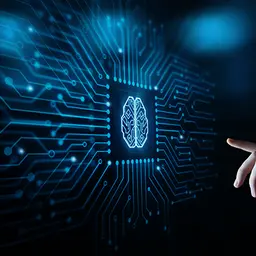
Digital
Innovations in pharmaceutical Digital Including Digital Labs, Blockchain, AI and Machine Learning

How is retrieval-augmented generation aiding smaller biotechs in collating and utilising disparate data systems?

What are co-folding models and how is their use transforming drug development?

How can pharma companies improve their digital systems while maintaining regulatory compliance, and ensure the two teams work together cohesively?

How is artificial intelligence, when delivered through software as a service platforms, unlocking real business outcomes for pharmaceutical manufacturers, from faster batch release and smarter investigations to smoother tech transfers and enterprise-wide compliance?

How is artificial intelligence changing the way drug discovery and development is enacted across the sector, yielding not only impressive potential, but also clinically validated pharma products?

Artificial intelligence-powered de novo protein design is opening new pathways in biologics discovery, allowing researchers to create synthetic proteins beyond nature’s existing repertoire

For decades, bringing a drug from concept to patient access has been an expensive, convoluted and often uncertain journey. The traditional drug discovery process relies heavily on trial and error, biological hypotheses and rigid scientific processes. Various challenges significantly prolong the drug discovery process, ultimately slowing the pace of innovation and delivery of treatment for patients. Today, the integration of artificial intelligence into the drug discovery proc

Retrosynthesis is the chemist’s toolkit for building complex molecules from simpler ones. Once rooted in intuition and experience, the process has been transformed by artificial intelligence and big data. This article explores how retrosynthesis works, why it matters and how it’s shaping the future of chemistry – from drug discovery to materials science

What’s the evolving impact of digitalisation on life sciences operations, and how can a systems-engineered approach help to create more resilient, flexible and future-ready compliant thermal processes?

From accelerating drug discovery to enabling earlier cancer diagnosis, how is artificial intelligence redefining value creation, transforming patient care and prompting a shift from reactive treatment to proactive intervention?

James Kugler at EMD Digital/Merck speaks to IPT about how counterfeit drugs, regulatory pressures and supply chain vulnerabilities demand a greater level of transparency in pharmaceutical manufacturing. Cyber-physical trust platforms, which provide an immutable link between physical products and their digital twins, will set a new standard and revolutionise the industry

How will advancements in technology affect the pharma sector, from both commercial and R&D points of view?